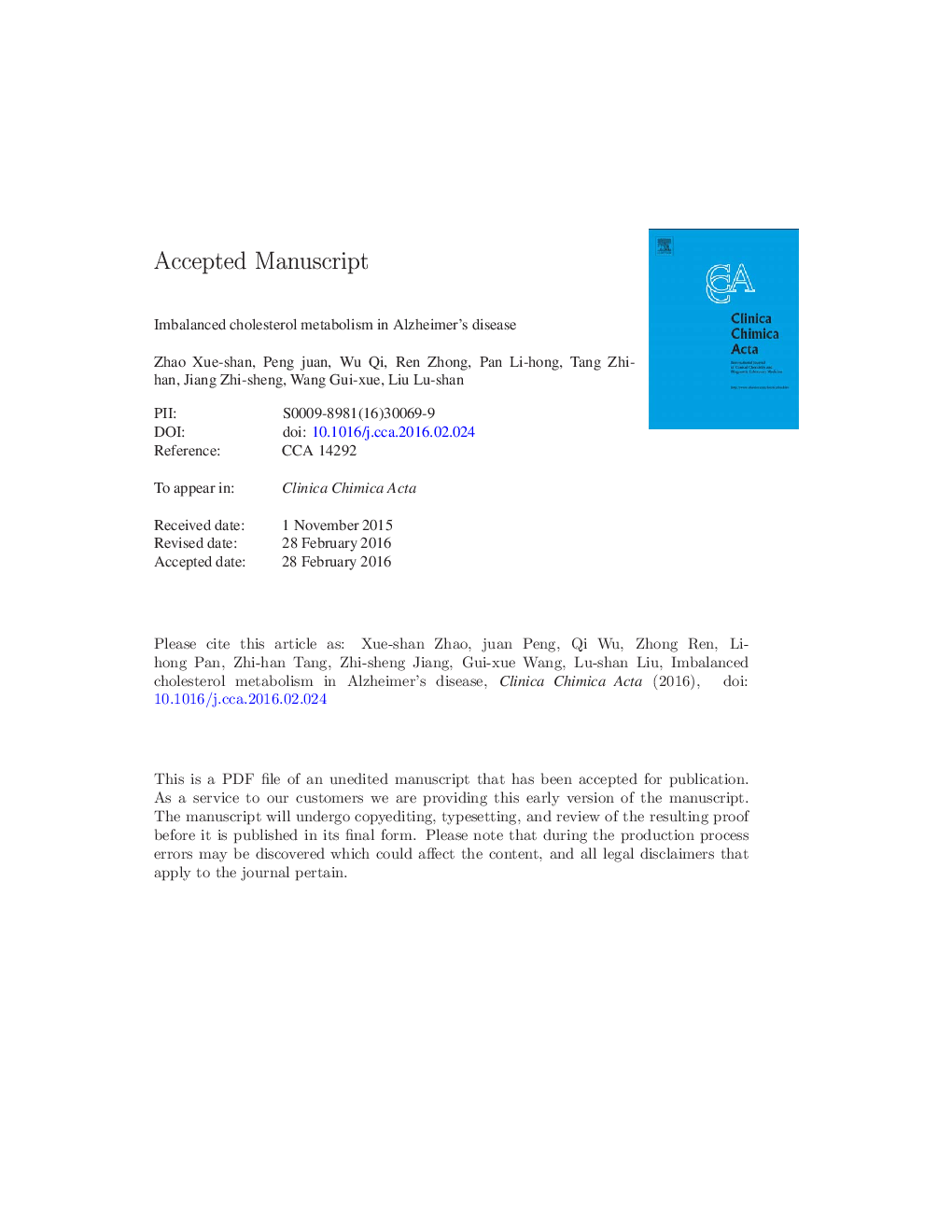| Article ID | Journal | Published Year | Pages | File Type |
|---|---|---|---|---|
| 8310182 | Clinica Chimica Acta | 2016 | 21 Pages |
Abstract
Alzheimer's disease (AD) is a complex and multifactorial neurodegenerative disease that is mainly caused by β-amyloid accumulation. A large number of studies have shown that elevated cholesterol levels may perform a function in AD pathology, and several cholesterol-related gene polymorphisms are associated with this disease. Although numerous studies have shown the important function of cholesterol in AD pathogenesis and development, the underlying mechanism remains unclear. To further elucidate cholesterol metabolism disorder and AD, we first, review metabolism and regulation of the cholesterol in the brain. Second, we summarize the literature stating that hypercholesterolemia is one of the risk factors of AD. Third, we discuss the main mechanisms of abnormal cholesterol metabolism that increase the risk of AD. Finally, the relationships between AD and apolipoprotein E, PCSK9, and LRP1 are discussed in this article.
Related Topics
Life Sciences
Biochemistry, Genetics and Molecular Biology
Biochemistry
Authors
Zhao Xue-shan, Peng juan, Wu Qi, Ren Zhong, Pan Li-hong, Tang Zhi-han, Jiang Zhi-sheng, Wang Gui-xue, Liu Lu-shan,
